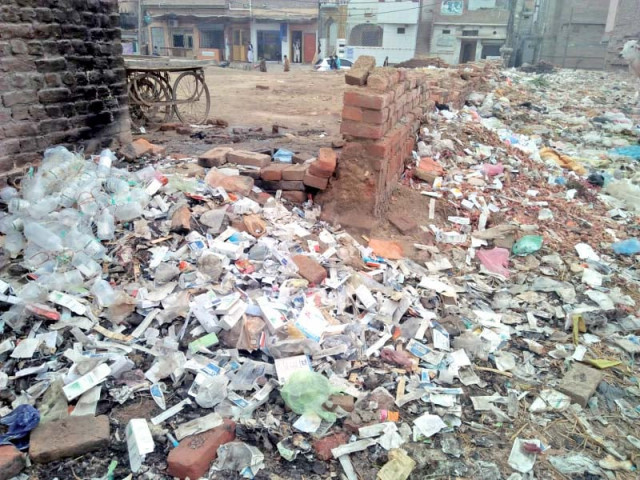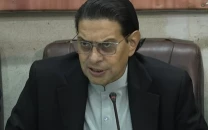Rato Dero HIV outbreak highlights sick state of healthcare in Sindh
NYT report talks about the dismal condition of health sector in Pakistan further hampered by Covid-19 pandemic

A New York Times report highlighted the dismal state of affairs of the health sector in Pakistan, in particular Sindh province, referring to the 2019's HIV outbreak in Rato Dero during which hundreds of children were reported positive.
"In Pakistan, HIV numbers have long been trending in the wrong direction. The most recent data indicate that only 21 per cent of those infected with HIV in Pakistan are aware of their status," it said.
The report quoted UNAIDS, saying that there are an estimated 190,000 HIV-positive people in the country, and only 12 per cent of them receive treatment.
"As a result, there has been a 385 per cent increase in HIV-related deaths in Pakistan since 2010. Sub-Saharan Africa, in contrast, has had a 45 per cent decline over that same period. Pakistan has one of the fastest-rising rates of infection in Asia and the Pacific," the report stated.
According to the World Bank, just over 3 per cent of the country’s gross domestic product goes toward health, one of the lowest such allocations in the world; its neighbour Afghanistan devotes nearly 10 per cent.
The report said that Pakistan, one of two countries that has not eradicated polio, also currently bears some of the heaviest burden from tuberculosis, at least in part because being HIV-positive increases the risk, by roughly 20-fold, of developing the disease.
Read more: HIV positive child dies in Rato Dero
As of Nov. 30, an astonishing 1,132 children in the city and its environs were HI.V-positive, most of them under age 13. To put this in perspective, the equivalent figure for the entire United States is less than 2,000; the American population, 330 million, is a thousand times that of the Rato Dero metropolitan area."
A local doctor Imran Arbani, in the report, said that the numbers in Rato Dero are certainly higher now — fuelled by the arrival of the Covid-19 pandemic in the country which put additional pressure on the already under-strained health system.
UNAIDS estimates that even a six-month interruption of antiretroviral therapy for 20 per cent of people would result in more than 110,000 additional deaths.
In a study in The Lancet Global Health, researchers modelled the impact of Covid-19 on HIV, tuberculosis and malaria. Over the next five years, in low and middle-income countries where these diseases are highly prevalent, deaths could increase up to 10 per cent for HIV, 20 per cent for tuberculosis and 36 per cent for malaria.
Also read: Story of neglect: Another grim year for healthcare in Pakistan
Mishal Khan, a policy analyst at the London School of Hygiene and Tropical Medicine who studies Pakistan’s health system, said that she doesn’t want “everything to be about Covid, because it’s not like the other issues will go away.”
"They’ll just get neglected,” she added because even infectious diseases that have been “taking lives for decades” haven’t been tracked as closely as Covid-19.
The New York Times report also highlighted the miseries a common person in Pakistan faces when a tragedy such as HIV struck a family. It narrated the story of Nazeer Shah, a banker by profession in Rato Dero, whose daughter Eman was diagnosed with HIV in 2019.
After her condition worsened, Eman was taken to Civil Hospital in Karachi, the only public hospital in the city with a paediatric HIV treatment centre. However, the doctors told Nazeer that her daughter "wasn't sick enough" and were sent away.
Nazeer then had to borrow money to take her daughter to Aga Khan University Hospital (AKUH) where she was immediately admitted into the intensive-care unit. She eventually got better after treatment.
In August, the report stated, five-year-old Farhan was found to have HIV He also tested positive for tuberculosis, for which treatment was started right away. The doctor then prescribed antiretrovirals.
In February, after becoming very ill, Farhan was unable to breathe and had chills so severe that his father, Abdul Razaq, a farmer, thought he was having seizures.
Razaq took him to a hospital in Larkana, where, after a couple of hours, the boy died. A number of other such cases have also been reported.
Originally published in The New York Times



















COMMENTS
Comments are moderated and generally will be posted if they are on-topic and not abusive.
For more information, please see our Comments FAQ